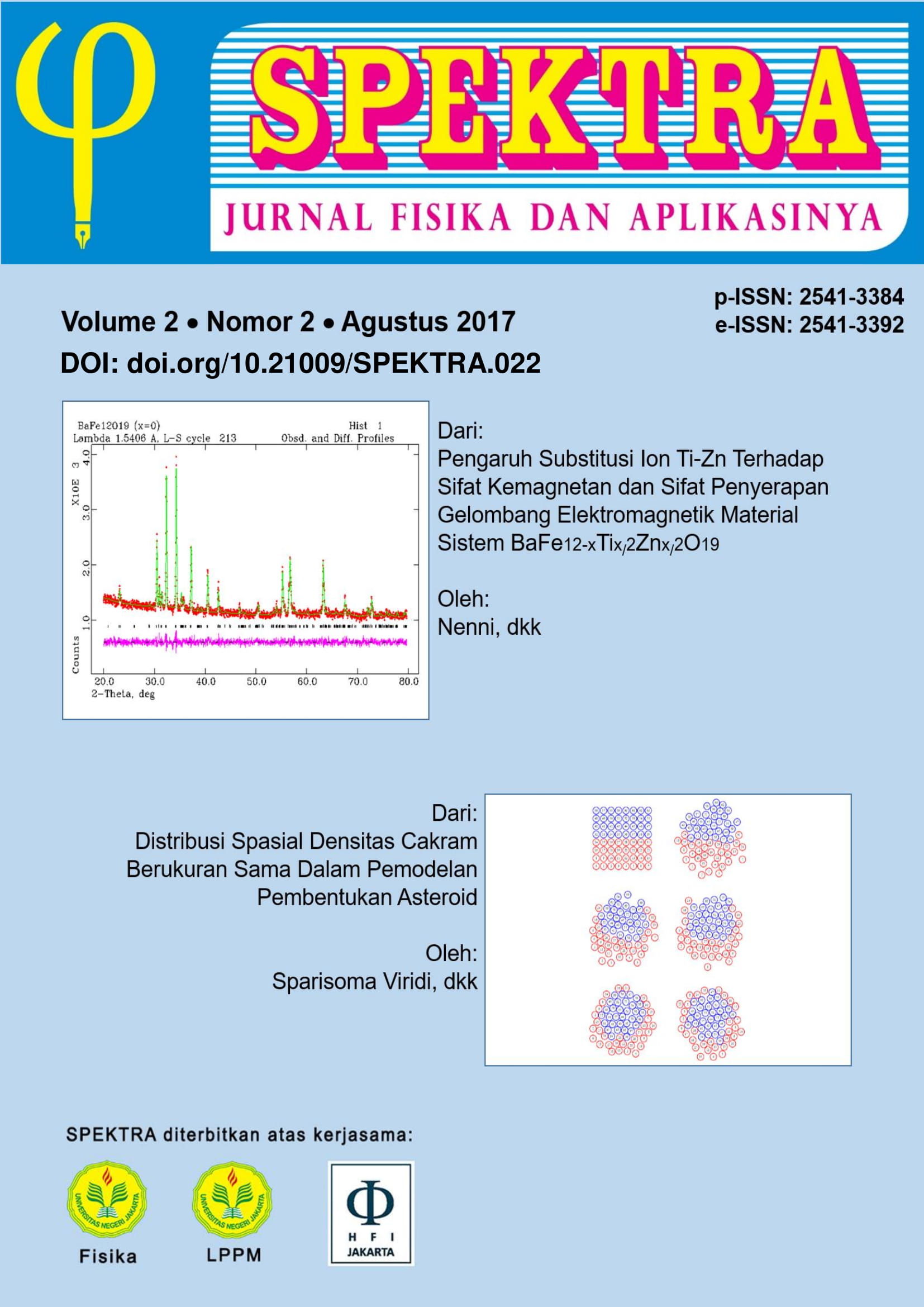KARAKTERISASI SENSOR PHOTODIODA, DS18B20, DAN KONDUKTIVITAS PADA RANCANG BANGUN SISTEM DETEKSI KEKERUHAN DAN JUMLAH ZAT PADAT TERLARUT DALAM AIR
DOI:
https://doi.org/10.21009/SPEKTRA.022.09Keywords:
temperature, turbidity, TDS, Arduino UnoAbstract
Abstract
Drinking water worth consumption are those that should be odorless, tasteless, clean, the temperatures preferably below air temperature, and low amounts of dissolved solids. On this turbidity and total dissolved solid water system is required some sensor devices. The accuracy of the sensor is an important thing to support the effectiveness of the system. In this research, the calibration of ds18b20 sensor as temperature detector, photodiode sensor as turbidity detector, and conductivity sensor as a detector of dissolved solid (TDS) in water and using Arduino as a microcontroller. The characterization is done by comparing the sensor output with laboratory test equipment. The result of characterization means that each measurement sensor has a variation error that is photodiode sensor with relative error 3.13%, sensor ds18b20 1.77%, and conductivity sensor 2.42%.
Keywords: temperature, turbidity, TDS, Arduino.
Downloads
Published
How to Cite
Issue
Section
License
SPEKTRA: Jurnal Fisika dan Aplikasinya allow the author(s) to hold the copyright without restrictions and allow the author(s) to retain publishing rights without restrictions. SPEKTRA: Jurnal Fisika dan Aplikasinya CC-BY or an equivalent license as the optimal license for the publication, distribution, use, and reuse of scholarly work. In developing strategy and setting priorities, SPEKTRA: Jurnal Fisika dan Aplikasinya recognize that free access is better than priced access, libre access is better than free access, and libre under CC-BY or the equivalent is better than libre under more restrictive open licenses. We should achieve what we can when we can. We should not delay achieving free in order to achieve libre, and we should not stop with free when we can achieve libre.
 SPEKTRA: Jurnal Fisika dan Aplikasinya is licensed under a Creative Commons Attribution 4.0 International License.
SPEKTRA: Jurnal Fisika dan Aplikasinya is licensed under a Creative Commons Attribution 4.0 International License.
You are free to:
Share - copy and redistribute the material in any medium or format
Adapt - remix, transform, and build upon the material for any purpose, even commercially.
The licensor cannot revoke these freedoms as long as you follow the license terms.

 E-ISSN 2541-3392
E-ISSN 2541-3392  Focus & Scope
Focus & Scope  Editorial Team
Editorial Team  Reviewer Team
Reviewer Team  Author Guidelines
Author Guidelines  Article Template
Article Template  Author Fee
Author Fee  Publication Ethics
Publication Ethics  Plagiarism Policy
Plagiarism Policy  Open Access Policy
Open Access Policy  Peer Review Process
Peer Review Process  Retraction & Correction
Retraction & Correction  Licensing & Copyright
Licensing & Copyright  Archiving & Repository
Archiving & Repository  Contact
Contact  Mendeley
Mendeley 

